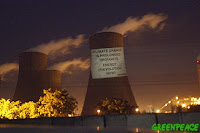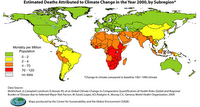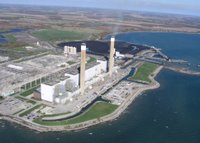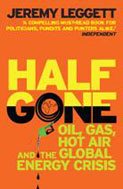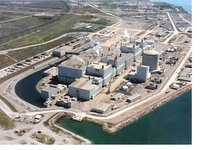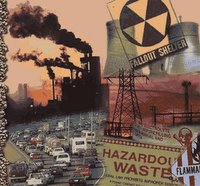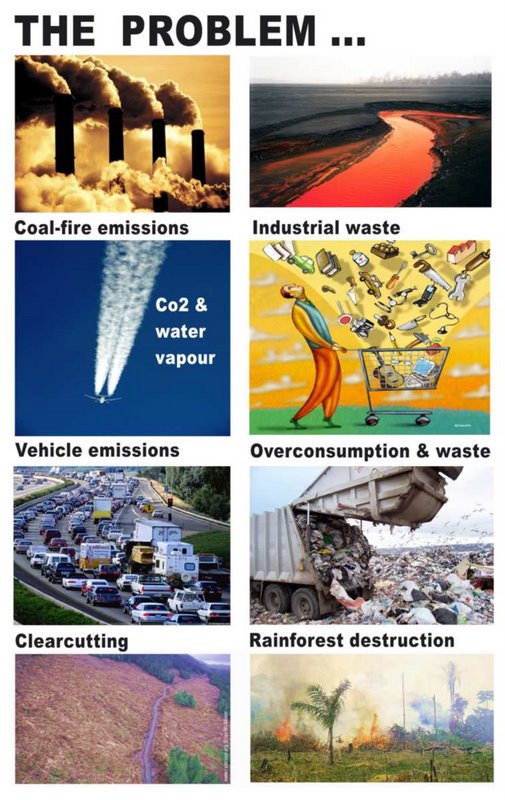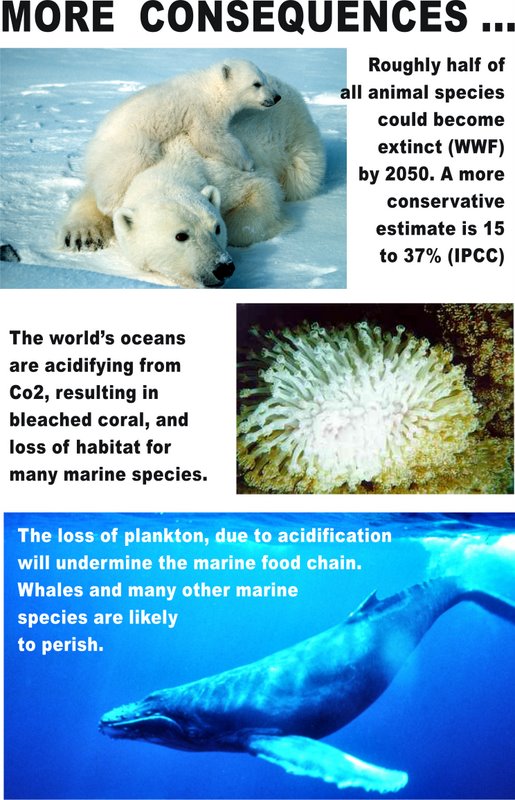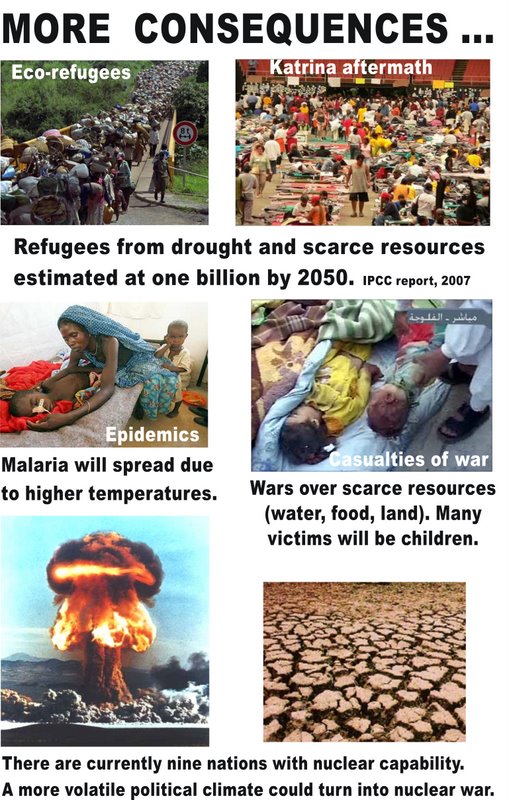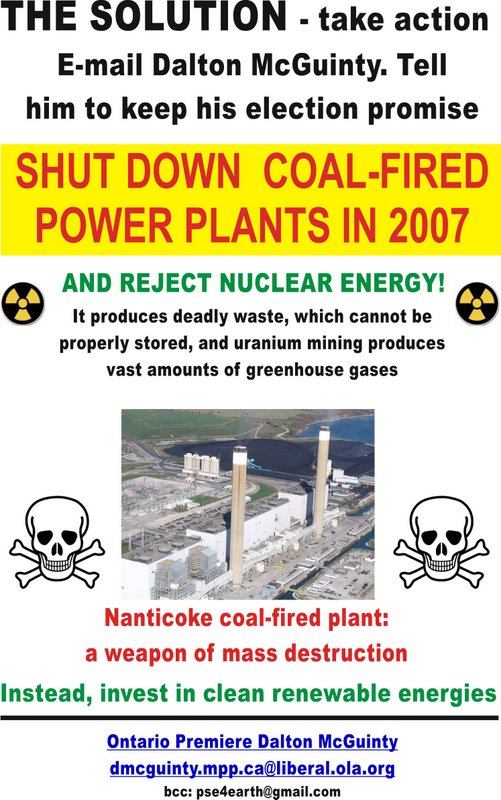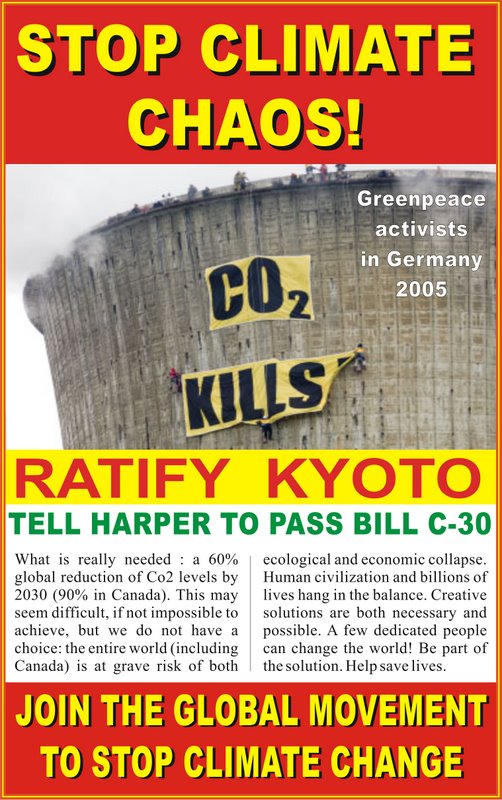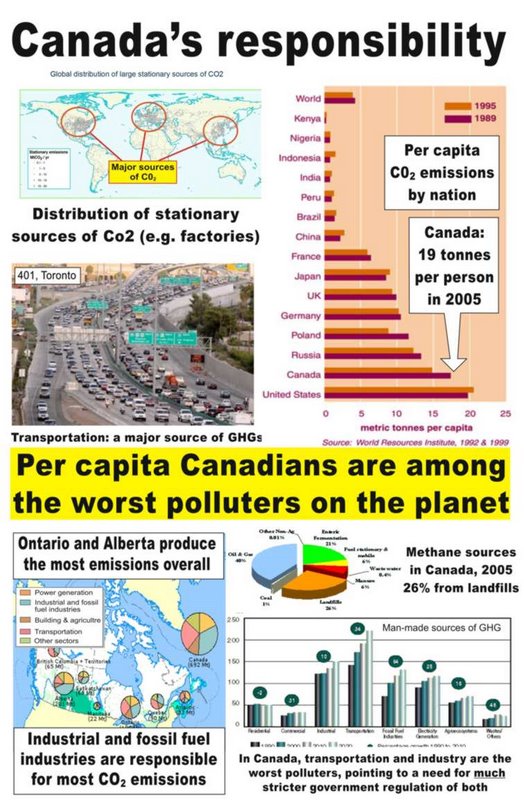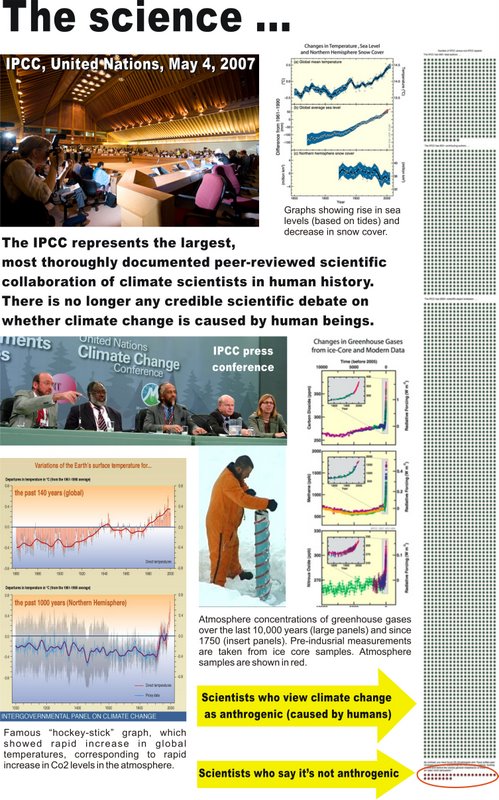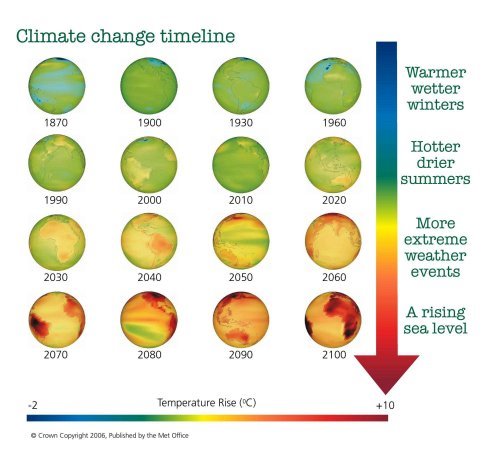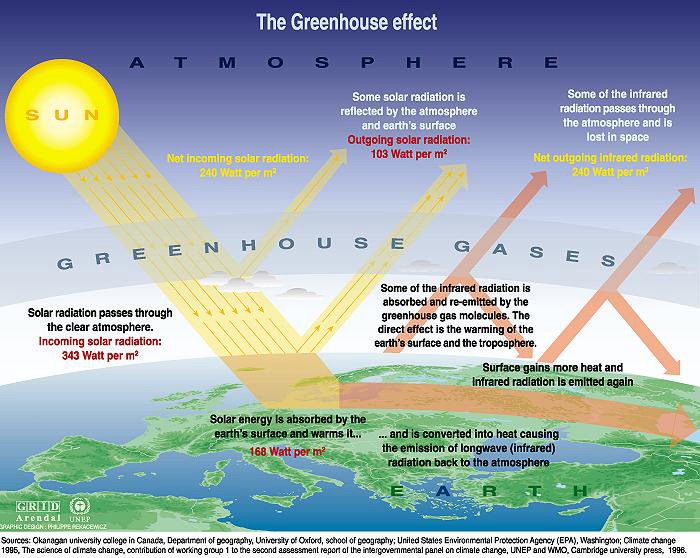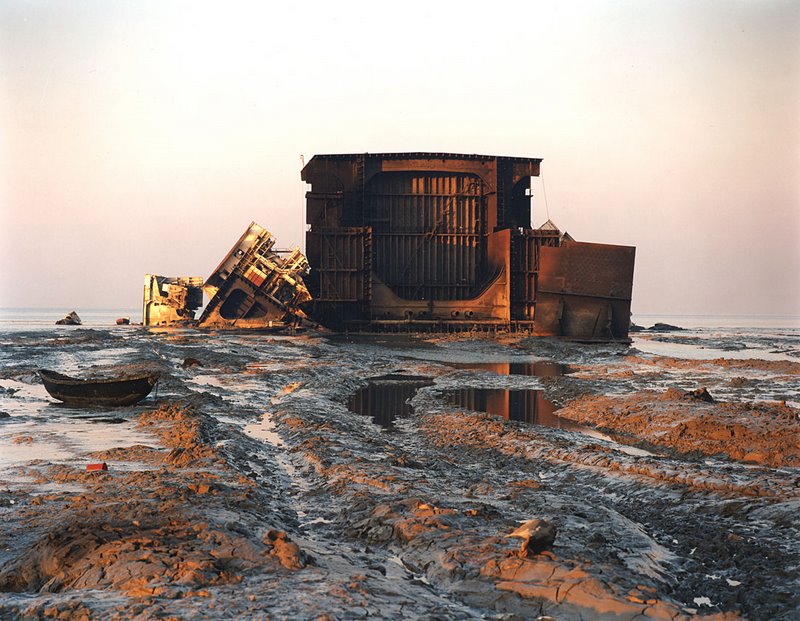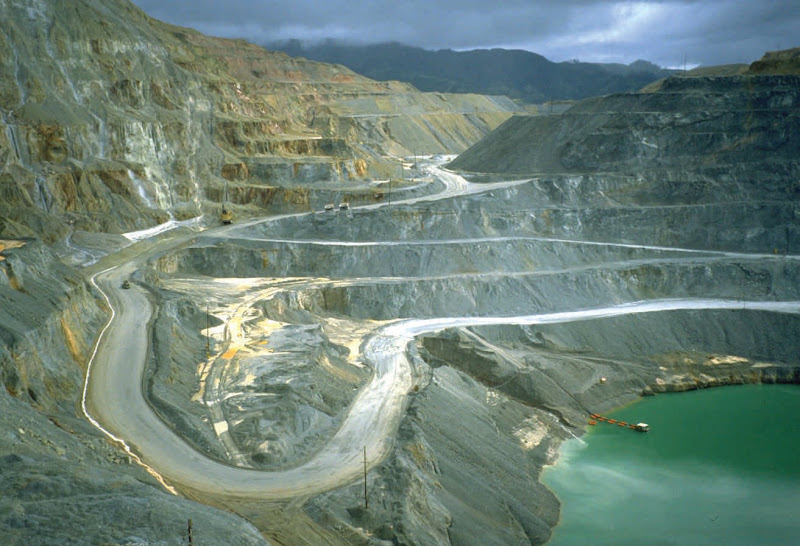
Reprinted from Kingston Whig Standard
Why Bob Lovelace is in jail; A message is being sent to mining companies: Ontario is open for business I know Bob Lovelace as a soft-spoken and self-reliant neighbour, devoted father and dedicated Queen's University teacher admired by his students and colleagues. He's the kind of guy who constructs a log house in the woods north of Kingston with his own skill and sweat; builds a box planter at the local swimming spot and keeps it stocked with marigolds and petunias; and provides venison for a potluck supper. He's as innately confrontational as a panda bear.
Yet much of the public knows Bob Lovelace as a nominally militant aboriginal prisoner now serving a six-month jail sentence and facing cumulative personal fines of nearly $400,000 for contempt of court. His transgression? Refusing to obey a judicial order not to continue his peaceful blockade at a proposed uranium mine site on lands Algonquin First Nations have never ceded title to under any prior treaty or land claim settlement.
Yet, as even the mine promoter's lawyer has admitted in court hearings, there is a vanishingly small chance a uranium mine will ever get built at the headwaters of the Mississippi River northwest of Sharbot Lake. Compared to other deposits in Saskatchewan, Australia, South Africa and Asia, the ore is laughably low-grade, and the cost to mine fatally high.
So how did it come to this?
In effect, Bob is in jail because he has quietly, but implacably, declined to concede that a provincial court has the ultimate authority to decide what happens on lands his Algonquin forebears have used without ecological abuse for thousands of years.
A key point is that these are not private lands in dispute. The collision has occurred because. for more than a century. Ontario governments have blithely assumed that all provincial lands are solely entrusted to it, and are thus subject to mining laws that allow any prospector or com-pany, from anywhere, to stake out land and claim any mineral wealth below. Without asking anyone else's permission.
In this case, the provincial Ministry of Natural Resources handed out the permits to a fledgling outfit called Frontenac Ventures, and the com-pany maintains that it can drill for uranium with the law on its side. Without First Nation approval.
On this, the company, a provincial court and the cabinet of Dalton McGuinty tacitly agree. That's why my neighbour is in prison as a kind of conscientious objector, his impoverished First Nation is facing additional cumulative fines of nearly $400,000, and Frontenac Ventures has the sanction to drill for uranium deposits that will never prove profitable.
This makes no sense at all - unless the real issue here is far larger and more deceptive than a puny, potentially speculative mine play that may capitalize on gullible or greedy investors fixated on the spiking world price of uranium, and the venerable flim-flam tactic of selling them sizzle instead of steak.
My bet is that the Ontario government knows - just as well as Canada's major uranium com-panies know - that eastern Ontario is essentially bereft of profitable deposits. Compared to the mammoth, rich, easy-to mine uranium reserves in northern Saskatchewan, which are known as "elephants" in industry parlance, those from Sharbot Lake to Bancroft to Elliot Lake are like scattered mice.
Perversely, because these Ontario deposits would yield far few ounces of uranium per tonne of ore mined, the volume of radioactively contaminated waste rock and other lethal pollutants would be far greater. So the public pollution risk would be high, and the financial reward small to non-existent for a private company.
The Ontario government is not blind to these facts. Or to the past legacy of uranium mining at Elliot Lake, which left more than 100 million tonnes of dangerous waste tailings for posterity, and desecrated the downstream Serpent River watershed. So what is really going on?

Caption: Chief Paula Sherma, Ardoch Algonquin at protest to free Bob Lovelace
I suspect that the Ontario government is determined to assure the bigger, richer, more experienced mining interests, and international investors, that Ontario is a place where they can come and make serious money by mining not uranium but diamonds, gold, platinum, nickel, copper and zinc - with minimal hindrance. And because most of that potential mineral wealth is in northern Ontario, where most of the population is aboriginal, the right signals need to be sent. To mining companies, the Dalton McGuinty message is: Ontario is wide open for business. To First Nations it is: get on board, or out of the way - or go to jail.
As evidence of this, consider that the lawyer for Frontenac Ventures also represents a different mining company that wants to develop a platinum prospect near Big Trout Lake in northwest Ontario, despite determined First Nation opposition. There, aboriginal leaders are also facing, like Bob Lovelace, potential imprisonment and crippling fines. The lawyer representing Bob Lovelace also acts for the Big Trout community. So the confrontation is identical, except the mineral at the heart of the showdown is different.
There are hints that the platinum mine promoter, like Frontenac Ventures, might be willing to withdraw from that mine play if the Ontario government effectively pays it to go away. If this occurs, then it will be Ontario taxpayers who end up being mined for millions. not uranium or platinum deposits.
This would be bad for everyone except the victorious speculators, and the lawyers collecting Bay Street fees for their artful advice. It would prompt other speculators to try the same trick. And it would leave Bob Lovelace with a contempt of court conviction, facing a lifetime sentence of paying court-imposed fines, and his family wrenched by trauma. (To its great credit, Queen's University has pledged to restore his teaching post when he is released.)
In the end, I believe Bob Lovelace will be vindicated because, largely forgotten in this whole sinister drama, is the likelihood that he has the highest law of the land on his side. The Supreme Court of Canada has ruled, after a century of plaintive petitions from aboriginal leaders from coast to coast to coast, that they collectively hold certain fundamental rights to land and resources, to First Nation cultural preservation, and to be consulted before those may be put at risk.
Uranium ore poses just such a risk. In spades. Once unearthed, it constantly emits invisible but deadly radioactive particles that respect nothing. These can bio-accumulate indiscriminately in countless plants and animals, effectively gaining lethality over time because nothing in nature can destroy them. Many of these radioactive particles mimic beneficial body chemicals like calcium or iodine, are especially perilous to children and women of child-bearing age, and can impair the human gene pool.
And finally, because the only two uses of uranium are for nuclear reactors that covert it into other forms of even more lethal, long-lived radioactive wastes, or for nuclear weapons, a strong case can be made that all uranium, everywhere, is too dangerous to be mined by anyone. Period. And that it is any sensible citizen's civic duty to prevent such future harm.
If it goes that far, I suspect that some day the Supreme Court of Canada will rule that the rights of the Algonquins were violated when the Ontario government issued uranium exploration permits on unceded lands without authentic consultation and consent.
Meanwhile, it is tragic that while my thoughtful neighbour remains in a Lindsay jail an eternity away from his kids, none of these biological, human health and legal facts seem to be troubling the mind of our premier or his minister of aboriginal affairs. Judging by their deafening silence, for them Bob Lovelace apparently does not exist.
- Paul McKay is a former Whig-Standard reporter and the author of a biography of business magnate Stephen Roman and the Elliot Lake uranium industry.
Article ID# 928059


A more well-known political prisoner of another corrupt state; the causes of their imprisonment is the same: to put money and power ahead of people and the environment
Background ...
Robert Lovelace becomes a political prisoner On 15 February 2008, former chief Robert Lovelace began serving 6 months in jail for refusing to comply with a court injunction, while following Algonquin law to protect Creation. The charge stems from his participation in the Ardoch Alliance protest against uranium exploration on unceded Algonquin land near Sharbot Lake, Ontario.
The judge in the case handed down this harsh sentence along with heavy fines, saying "compliance with the orders of this court are not optional". The underlying issue, however, is that the government of Ontario did not consult with the First Nation community before issuing exploration licenses in Algonquin territory.
The lawyer for the Ardoch Algonquin First Nation, Chris Reid, intends to appeal the sentence but at this date, Robert is behind bars at the Central East Correctional Centre in Lindsay, Ontario.
Support
Protest Rally, Saturday 23 February, 2008
Over 400 people attended the rally and march in Napanee (location of the Quinte Detention Centre, Bob's original site of incarceration). There were speeches and letters of support and inspiration by various First Nations leaders, NGOs, lawyers and political representatives followed by a short march to the Detention Centre itself.
Direct action
Call Premier McGuinty every day and ask him:
Have you freed Bob Lovelace?
Have you removed unceded Algonquin land from uranium exploration and mining?
Have meaningful negotiations with the Algonquin First Nations started?
Have you begun a review of Ontario's Mining Act?
" No? I'll call back tomorrow to ask you again...."
Ottawa constituency office: 613-736-9573
Queen's Park: 416- 325-1941
or email your questions to:
dmcguinty.mpp.co@liberal.ola.org
Contacting Bob
Letters of support for Robert Lovelace can be mailed to:
Central East Correctional Centre
541 Hwy 36
Lindsay, Ontario
K9V 4S6
Providing financial support
Many people have asked how they can help Robert and his family in this difficult and stressful situation.
Robert has been fined $25,000, plus $2,000 per day that he is not in compliance with the order. Co-chief Paula Sherman has been fined $15,000. The Ardoch Algonquin First Nation community has been fined $10,000. You can make donations to be held in trust by sending a cheque made out to
"C. Reid, in trust for the Ardoch Algonquin First Nation"
The cheque should be mailed to:
Christopher M. Reid
Barrister & Solicitor
154 Monarch Park Ave.
Toronto, ON M4J 4R6
Tel: (416)446-9928
Fax: (416)466-1852













 A sustainable future must inlcude frogs and amphibians. We are morally culpable if we continue to allow them to die. Invader species and habitat loss are the leading causes.
A sustainable future must inlcude frogs and amphibians. We are morally culpable if we continue to allow them to die. Invader species and habitat loss are the leading causes.




















































































































































































































































.jpg)





































































































